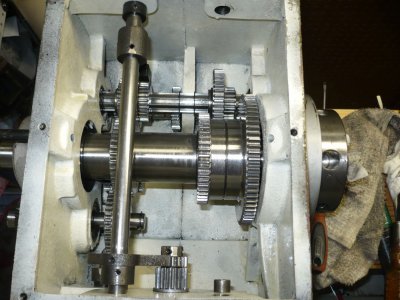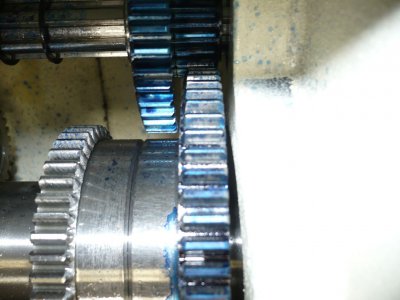Mark, a picture is worth a 1000 words! Thanks.
Was the magnetic plug original equipment or your doing?
Did subsequent magnetic plug readings show as much grunge on the magnet?
Dan, are you still finding 'fines' when changing the oil or were they only present on the first oil change?
hehe, well this is going to be embarrassing to admit, but I haven't changed it since 2014 when I finally got it into my shop.
There's a 'klunk' in 'Low' that I still haven't figured out or repaired.
When I drained it back then I had magnets in the plastic tub and had a bunch of fines like Mark has in his picts.
I've got two or three magnets salvaged from hard drives laying in there currently.
I haven't changed it because, well a.) it doesn't get used all that much, b.) It's got a small leak on the spindle, and c.) I need to tear it down and figure out where the 'klunk' is coming from.
And all that _after_ I scrap and repair the cross slide. So it's on the To-Do list.
If you take a look at the second picture you can see the odd contacting and 'rub-off' of Dykem on the gears in 'Low'.
That's where the 'fines' come from, IMO. While the oil prevents major wear nothing is going to help when it's poorly manufactured or assembled and the clearances aren't as they should be.
Add to that, it's all a splash' system and the upper selector arm relies on splash to lube it.






